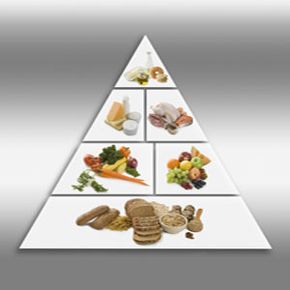Your diet stinks. You hate eating vegetables, and whole wheat pita bread can't hold a candle to a nice fat hoagie roll. Desserts rank higher on your list than fresh fruit, and bacon and hash browns beat the heck out of an egg white omelet every time. If your idea of the four basic food groups is fried, buttered, sweet and salty, then we're talking to you.
You think you've got it all under control because of that magic little pill called the multivitamin. You take it every day without fail. It says right on the container that it gives you everything you need, so why bother with a balanced diet, right? Not so fast. While multivitamins have their place, they aren't for everyone and they can even cause more harm than benefit in some cases.
Advertisement
The "one-a-day" multivitamin was introduced to American consumers more than 60 years ago and since then has become a staple for tens of millions of adults and children each day. Most multivitamins on the market contain 10 vitamins and 10 minerals to supplement your regular diet, which is about a full day's worth of the recommended amount, aside from calcium, which is too bulky to pack into a pill. Multivitamins claim to help build your immune system and reduce the risk of some chronic diseases like colon cancer and cardiovascular disease. They do, to some degree, but some recent studies indicate that some of these vitamins aren't all they're made out to be.
Multivitamins are a good way to help supplement a diet for those who don't always have time to shop for fresh vegetables, fruit and whole grains. But most health experts agree that a multivitamin is no replacement for a good, well-balanced diet. In fact, if you do eat a well-balanced diet, you not only have no need for a multivitamin, but you actually could be getting too much of a good thing -- especially when you consider that many foods are already fortified with vitamins and minerals. Supplementing the areas where your diet falls short with specific vitamins may be a better plan if you're a relatively healthy eater.
The trick to taking multivitamins is finding the right one for you. There are pills for kids, adult men, adult women before and after menopause, women planning on having a baby, women already pregnant or lactating and people over 60 years old. There are also multivitamins specifically targeted for vegetarians and vegans. Some vitamins claim to give you energy or aid in weight loss, but you should be wary of these -- their effects have not been clinically studied.
Advertisement




